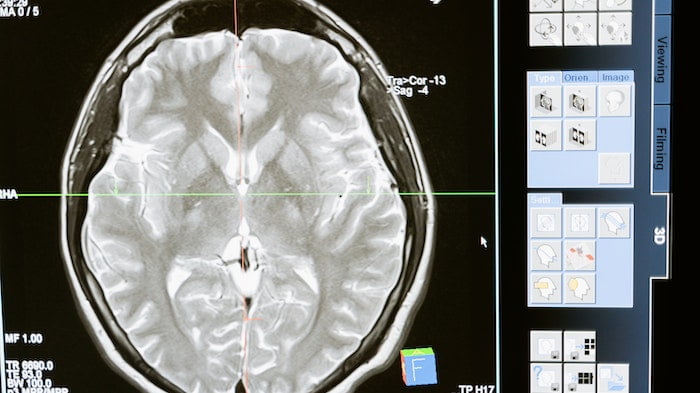- Home
- Addiction Guides
- How can Ecstasy Affect your Mental Health?
How can Ecstasy Affect your Mental Health?
Ecstasy is a synthetic drug that creates a hallucinogenic and stimulating effect.
It creates a temporary ‘high’ where people experience a sense of excitement, energy and a distorted sense of confidence, ability, and time.
The scientific name for ecstasy is methylenedioxymethamphetamine, which is why some people refer to ecstasy as MDMA. Worryingly, the structure of methylenedioxymethamphetamine is very similar to that of meth, another highly addictive drug. It stimulates the nervous system, which makes your senses extremely sensitive [1].
Ecstasy was initially made to help people with mental struggles during the treatment process, as individuals found it to be extremely calming and helpful. However, ecstasy is now illegal.
If you’re worried that you are addicted to ecstasy, or think you know someone who is and are worried about their physical and mental health, then it is important to understand what ecstasy does to the brain and what this means for their mental health.
What does Ecstasy do to the Brain?

Ecstasy is a highly addictive substance, which affects both the body and the brain. Upon consumption, the addictive substance affects the brain’s neurotransmitters and nervous system. The chemicals within these neurotransmitters are serotonin, dopamine and norepinephrine [2].
As a result, the individual’s mood, energy and sense of reward and control are affected. Unfortunately, a mixture of all of these sensations can make individuals feel emotional, anxious and erratic.
With these sensations also comes a sense of high, openness, confidence and an increased sense of smell and sound. This all comes about very quickly, usually within half an hour of consuming the ecstasy. Depending on how much ecstasy you consume, the ‘high’ can last hours.
Ultimately, ecstasy has a very damaging effect on the brain. In order to function, the brain needs a sense of habit and control, and needs a certain and stable amount of the above chemicals in order to function.
However, when an individual consumes ecstasy and too many neurotransmitters enter the body all at once, the brain is flooded. However, when the individual comes out of their high, the brain struggles to comprehend the lack of chemicals all of a sudden.
This creates a particularly low mood, resulting in very low levels of dopamine and serotonin. As a result, individuals will frequently feel:
- Anxious
- Depressed
- Impulsive
- Tired
- Panicky
Ecstasy and Depression

As discussed above, ecstasy impacts the levels of serotonin in the brain. Whilst ecstasy creates an intense sense of confidence, ‘high’ and energy, abusing ecstasy on a regular basis can have permanent effects on the brain.
For example, abusing ecstasy on a regular basis has a detrimental impact on how the brain utilises serotonin, which can lead to a series of mental health issues, most notably depression.
When your body suffers from a lack of serotonin, you will also suffer from insomnia, anxiety and difficulty in coordination and balance.
Ecstasy and Anxiety
Ecstasy is also linked to anxiety. A study carried out in 2015 found that high doses of ecstasy produce feelings of anxiety, whereas lower doses were actually found to reduce a sense of anxiety in some people [3].
However, it is extremely difficult to determine what the ‘right’ amount of dosage is to avoid the onset of anxiety, as no one can be one hundred percent certain what is within the ecstasy and just how strong it is.
Individuals with anxiety might be tempted to consume more ecstasy in an attempt to get away from their anxious thoughts. However, in an attempt to run away from these thoughts, ecstasy only pronounces them.
Ecstasy and Bipolar Disorder
Bipolar disorder affects millions of people across the world every year and is unfortunately a very complex disorder. Lots of people who have bipolar disorder suffer from extreme changes in mood, alongside anxiety, depression and psychosis.
A lot of people consume ecstasy alongside other drugs such as cannabis and cocaine. Combining all of these drugs together could be linked to causing bipolar disorder, with so many chemicals being pumped into the individual at the same time.
Whilst more research is needed when looking into the link between ecstasy and bipolar disorder, current research does suggest a risk of developing bipolar disorder after consuming ecstasy.
Other Side Effects of Taking Ecstasy

Ecstasy creates a long list of different side effects within the body, as well as the mind. Whilst the initial effects of ecstasy might sound convincing for some, the long-term effects of abusing ecstasy are not only worrying but scary too.
Some of these negative effects are listed below:
- Tremors and the ‘shakes’
- Insomnia
- A higher resting heart rate
- Excessive sweating
- Teeth grinding and jaw clenching
- Weight loss
- Broken teeth
- Nerve damage
- Liver, kidney and heart disease
- Urine infections
As some people consume ecstasy alongside other drugs, it can sometimes be hard to distinguish side effects between the drugs. However, there is a strong link between ecstasy abuse and a number of different illnesses and health concerns.
Some of the most serious health side effects are now discussed below in more detail:
1. Excessive Sweating and Dehydration
One of the most serious health problems caused by consuming ecstasy is due to the excessive sweating and dehydration experienced when consuming ecstasy.
People who consume ecstasy often feel extremely hot, are unable to urinate and feel increasingly confused. As a result of this, they experience headaches, feel sick and often faint or collapse.
In an attempt to solve these issues, people often then consume excessive amounts of water. However, this only creates more issues as the salt levels within the body then changes drastically.
Instead, you should try to drink water slowly over a long period of time, to rehydrate your body slowly and in a monitored fashion.
2. Taking Part in Risky and Dangerous Behaviour

Ecstasy has now been proven to make people feel overly confident, whilst making them feel more trust and warmth towards people and things. However, this can result in many dangerous situations.
For example, lots of people take part in risky sexual behaviour whilst on ecstasy, by having sex with strangers and not using contraception. This can result in STDs and other serious health issues such as HIV.
Lots of people feel invincible when they consume ecstasy, and as a result of this try to experiment physically.
For example, lots of people on ecstasy will try to take part in risky behaviours such as swimming in open water or jumping off of buildings whilst intoxicated. As you can imagine, this often ends in tragedy.
3. Heart Problems
Ecstasy has now been linked to numerous heart problems, such as heart failure and heart disease. Ecstasy is particularly dangerous if you already struggle and suffer from a health defect or illness. Lots of people who abuse ecstasy suffer from dysrhythmias, which is where the heart’s muscles contract at a dangerous rate.
If you suffer from a pre-existing heart condition, then you should avoid taking ecstacy at all costs.
4. Lack of Judgement and Memory Issues
Lots of people who consume ecstasy suffer from memory issues and a lack of judgement afterwards. They struggle to concentrate and act appropriately in different situations.
As ecstasy impacts the brain’s hippocampus, it also affects the brain’s ability to remember information. This is true on both a short and long-term basis, with one study highlighting that those who take numerous ecstasy pills every year suffer from long-term memory issues [4].
Treatment for an Addiction to Ecstasy

If you are suffering from an addiction to ecstasy, then it is important to understand that your addiction is treatable. The best thing you can do is to talk to someone about your addiction.
You can start by talking to family or friends, and potentially your local GP. You can also talk to your local drug and alcohol team, or to someone at Rehab Recovery.
Our friendly and helpful team will be able to advise you on the best steps forward.
During rehab for an addiction to ecstasy, you will be offered a physical detox alongside therapy such as CBT, DBT, motivational interviewing and holistic therapy.
Call the Rehab Recovery team today by calling us on 0800 088 6686. Alternatively, you can visit us online at www.rehab-recovery.co.uk for free, helpful treatment advice and support.
References
[1] NIDA. 2020, June 15. MDMA (Ecstasy/Molly) DrugFacts. Retrieved from https://nida.nih.gov/publications/drugfacts/mdma-ecstasymolly on 2022, June 14
[2] NIDA. 2021, April 13. What are MDMA’s effects on the brain?. Retrieved from https://web.archive.org/web/20220921170257/https://nida.nih.gov/publications/research-reports/mdma-ecstasy-abuse/what-are-mdmas-effects-on-brain on 2022, June 14
[3] Karimi S, Jahanshahi M, Golalipour MJ. The effect of MDMA-induced anxiety on neuronal apoptosis in adult male rats’ hippocampus. Folia Biol (Praha). 2014;60(4):187-91. PMID: 25152052.
[4] Wiley. (2012, July 25). Ecstasy harms memory with one year of recreational use. ScienceDaily. Retrieved June 12, 2022 from www.sciencedaily.com/releases/2012/07/120725200258.htm




